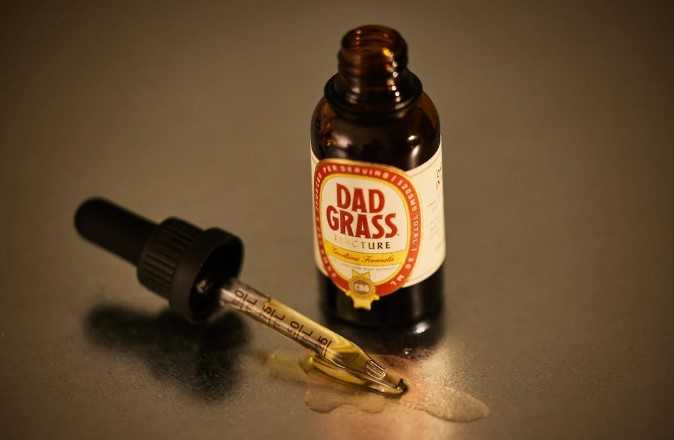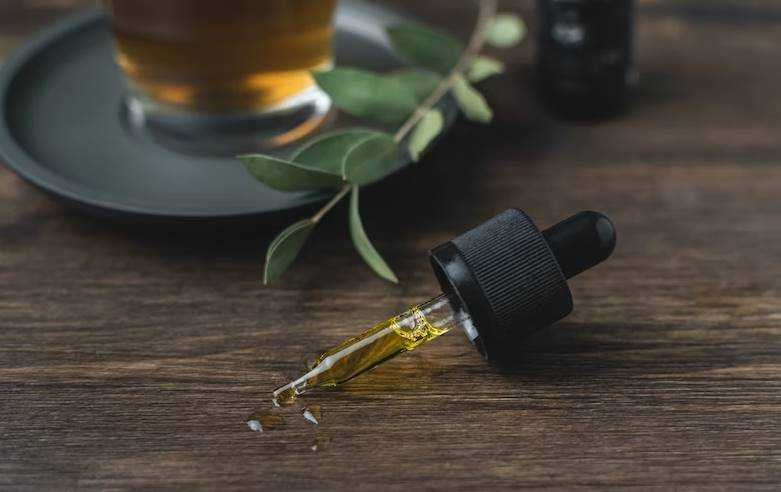Overwhelmed by the complexities of determining the right CBD dosage for yourself? Factors such as body weight, metabolism, and health conditions play a crucial role in finding the perfect CBD dosage that suits your needs. With various forms like tinctures, edibles, topicals, and vaping offering different bioavailability levels, it’s vital to consult a healthcare professional for guidance. This blog post explores common dosage mistakes, the importance of careful consideration, and practical tips for choosing the correct CBD dosage tailored to your individual requirements. So, how much CBD is right for you? Let’s find out!
Key Takeaways:
- Factors influencing CBD dosage: Body weight, metabolism, and health conditions play a role in determining the appropriate CBD dosage.
- Different forms of CBD: Tinctures, edibles, topicals, and vaping offer various options with differing bioavailability levels for users.
- Finding the right dosage: Consultation with a healthcare professional, monitoring effects, and adjusting dosage based on individual needs are vital in determining the correct CBD dosage.
- Common dosing mistakes: Overdosing, taking too much too soon, not monitoring effects, and neglecting to adjust dosage are common errors to avoid.
- Importance of caution: Thoughtful consideration and professional guidance are imperative in ensuring the right CBD dosage for an individual’s specific needs and conditions.
Factors Influencing CBD Dosage
While exploring the right CBD dosage for your needs, it’s crucial to consider several factors that can influence how your body responds to CBD. These factors include your body weight, metabolism, and underlying health conditions. Recognizing these elements can help you determine the most effective dosage for your individual situation.
Body Weight
The amount of CBD you need may be influenced by your body weight. Generally, individuals with higher body weights may require higher doses of CBD to experience the desired effects. The recommended starting dose is often 1-6 mg of CBD for every 10 pounds of body weight.
Metabolism
Body metabolism plays a significant role in how CBD is processed in your system. A faster metabolism might process CBD more quickly, requiring higher or more frequent doses to maintain desired effects. Factors such as age, genetic predisposition, and overall health can impact your metabolism’s efficiency.
Health Conditions
Influencing how your body responds to CBD are underlying health conditions you may have. Certain health issues may require higher or lower doses of CBD to achieve the desired therapeutic effects. Conditions such as chronic pain, anxiety, or epilepsy may necessitate different dosages tailored to your specific needs.
Weight, metabolism, and health conditions are critical factors to consider when determining the right CBD dosage for you. Consulting with a healthcare professional can provide personalized guidance to help you navigate the CBD dosage dilemma effectively.
Different Forms of CBD
Tinctures
It is important to note that CBD tinctures are one of the most common forms of CBD available on the market. Tinctures are easy to use and provide a quick way to consume CBD. They are typically taken sublingually, meaning you hold a few drops under your tongue for faster absorption into the bloodstream. Tinctures offer a high bioavailability level, making them an effective choice for many individuals.
Edibles
To explore another form of CBD, consider trying edibles such as CBD gummies or capsules. Edibles are popular due to their convenience and familiar consumption method. You simply ingest the edible, and the CBD is absorbed through the digestive system. Keep in mind that edibles have a lower bioavailability compared to tinctures, as the CBD must pass through the digestive tract before entering the bloodstream.
When choosing edibles, pay attention to the dosage per serving to ensure you are getting the right amount of CBD for your needs. It is recommended to start with a low dosage and gradually increase until you find the optimal amount that works best for you.
Topicals
One form of CBD that targets localized areas is topicals, such as CBD creams or balms. These products are applied directly to the skin and offer targeted relief for muscle soreness, joint pain, and skin conditions. Topicals are ideal for individuals looking for specific relief without affecting the rest of their body.
For instance, if you are experiencing muscle soreness after a workout, applying a CBD cream to the affected area may provide targeted relief. Topicals are a great option for individuals seeking localized benefits without the need to ingest CBD orally.
Vaping
Tinctures can provide another method of consuming CBD through vaping. Vaping involves inhaling CBD-infused vapor through a vape pen or device. Vaping offers quick absorption into the bloodstream, making it an efficient way to experience the effects of CBD. However, it is necessary to be cautious with vaping, as the effects can be potent and immediate.
Understanding the different forms of CBD can help you choose the best option that aligns with your preferences and needs. Whether you prefer sublingual tinctures, convenient edibles, targeted topicals, or quick-acting vaping, there is a CBD product suitable for you. Consider the onset time, bioavailability, and potential benefits of each form to make an informed decision for your CBD journey.

Finding the Right Dosage
Many factors can influence the effectiveness of your CBD dosage, making it necessary to consult a healthcare professional before starting any CBD regimen. A doctor can take into account your body weight, metabolism, and existing health conditions to recommend the appropriate dosage for your individual needs. This personalized approach ensures that you are starting with a safe and effective amount of CBD, minimizing the risk of adverse effects.
Consulting a Doctor
On top of the individual factors that can affect CBD dosage, it is crucial to consider any potential interactions with medications or existing health conditions. A healthcare professional can help navigate these complexities and provide guidance on the right CBD dosage for you. By consulting a doctor, you can ensure that your CBD regimen is tailored to your specific circumstances, optimizing the benefits while minimizing any potential risks.
Monitoring Effects
Any CBD regimen requires careful monitoring of its effects on your body. Pay attention to how you feel after taking CBD and track any changes in symptoms or overall well-being. This feedback is necessary in determining the efficacy of your current dosage and whether adjustments are necessary to achieve optimal results. Regularly assessing how CBD is affecting you allows for a more informed decision-making process when it comes to finding the right dosage for your needs.
Adjusting Dosage
Finding the right CBD dosage is crucial for effectiveness and safety. Adjust intake based on response: increase if needed for desired effects, decrease if experiencing side effects. Regularly assess and adjust dosage for optimal benefits. Consult a healthcare professional for guidance and monitor effects on your body.
Common Mistakes in Dosing
Overdosing
After factoring in your body weight, metabolism, and health conditions, it’s crucial to avoid overdosing on CBD. While CBD is generally well-tolerated, taking too much can lead to potential side effects such as fatigue, changes in appetite, and diarrhea. It’s important to start with a low dosage and gradually increase it as needed to find the right balance for your body.
Taking Too Much Too Soon
For optimal results, it’s necessary to introduce CBD gradually to your system. Taking too much CBD too soon can overwhelm your body and result in adverse effects. Start with a small dosage and give your body time to adjust before increasing the amount. This gradual approach allows you to gauge the effects and determine the correct dosage for your individual needs.
Not Monitoring Effects
Overdosing on CBD can have negative consequences if you’re not paying attention to how it affects you. It’s necessary to monitor the effects of CBD after taking it to ensure that you’re not exceeding your body’s tolerance level. Keeping track of any changes in your symptoms or overall well-being can help you adjust your dosage accordingly.
Neglecting to Adjust Dosage
Monitoring your dosage and making necessary adjustments is a critical step in using CBD effectively. Neglecting to adjust your dosage as needed can lead to either underwhelming results or potential overdose. By regularly assessing the impact of CBD on your body and adjusting your dosage accordingly, you can ensure that you’re receiving the optimal benefits without experiencing any adverse effects.
Final Words
To determine the right CBD dosage, consider factors like body weight, metabolism, and health conditions. Monitor how your body responds to different forms of CBD and consult a healthcare professional for guidance. Avoid common mistakes like overdosing or not adjusting your dosage. Find the right balance through cautious and thoughtful consideration. Healthcare providers can help determine the correct dosage for your individual needs. Take the time to find the optimal CBD dosage for potential benefits with confidence.
FAQ
Q: What factors should I consider when determining the right CBD dosage for myself?
A: When determining the right CBD dosage, consider factors such as body weight, metabolism, and any existing health conditions you may have.
Q: What are the different forms of CBD that I can choose from for consumption?
A: Different forms of CBD include tinctures, edibles, topicals, and vaping, each with varying levels of bioavailability.
Q: What are some common mistakes to avoid when dosing CBD?
A: Common mistakes in dosing CBD include overdosing, taking too much too soon, not monitoring effects, and neglecting to adjust dosage based on individual needs.


























